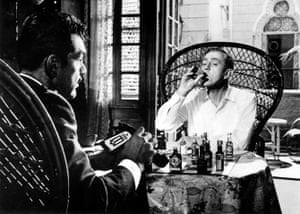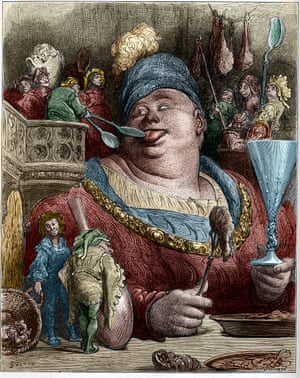 |
| The Bitter Drunk by Adriaen Brouwer |
’Tis a strange serpent – 10 of the most entertaining drinking bouts in literature
From Viking magical mead poetry to Evelyn Waugh’s Decline and Fall, here’s how writers have encapsulated an eternal boozy truth
Mark Forsyth
Friday 1 December 2017
T
here have been drunken poets and poetic drunkards ever since the dawn of time, or, to put it more properly, since the sun first rose over the yardarm of history. The Vikings believed that all poetry came from some magical mead that Odin had stolen from a giant, downed, and then regurgitated in Asgard. They even believed this of bad poetry because, according to them, Odin had regurgitated most of it, but, in the heat of the moment, some of it had leaked out of his arse.
That is the reason that some great literary drinking bouts are better than others. Some stories sum up an eternal boozy truth, some pinpoint perfectly how one particular culture saw their alcohol. Here are 10 of the best.
The Epic of Gilgamesh
The first ever work of literature is about Gilgamesh and Enkidu. Gilgamesh is the musclebound king of Uruk and Enkidu is a musclebound wild man who lives happily among the animals. Enkidu is completely at one with nature until a beautiful woman offers him beer.
Enkidu eats food till he was satiated. Ale he drinks, seven goblets. His spirit is loosened, he becomes hilarious. His heart becomes glad and his face shines. The barber removes the hair on his body. He is anointed with oil. He becomes manlike. He puts on a garment, and he is like a man.
And after that he can never go back to the animals. They shun him now. Alcoholhas made him a human. That’s exactly the same thing that happens at the end of Animal Farm (written a mere 4,000 years later). The animals peek in the window to see pigs drinking with the humans and “the creatures outside looked from pig to man, and from man to pig, and from pig to man again: but already it was impossible to say which was which”. It’s alcohol that divides us from the animals.
That’s not scientifically true, by the way. Most of the higher apes love to get drunk, providing that they can get their opposable thumbs on the stuff. Darwin recorded that the best way to catch a baboon was to offer it beer and then grab it when it was hungover.
Letters, Lord Byron
When not shagging his way across Europe or swimming his way across the Hellespont, Byron liked a drink. It’s not that he was a better drinker than anybody else, but he was much better at describing it. It’s probably best to simply let him speak for himself. This is from a letter to Thomas Moore dated 31 October 1815:
“Yesterday, I dined out with a largeish party, where were Sheridan and Colman, Harry Harris of Covent Garden and his brother, Sir Gilbert Heathcote, Ds. Kinnaird, and others, of note and notoriety. Like other parties of the kind, it was first silent, then talky, then argumentative, then disputatious, then unintelligible, then altogethery, then inarticulate, and then drunk. When we had reached the last step of this glorious ladder, it was difficult to get down again without stumbling;—and, to crown all, Kinnaird and I had to conduct Sheridan down a damned corkscrew staircase, which had certainly been constructed before the discovery of fermented liquors, and to which no legs, however crooked, could possibly accommodate themselves. We deposited him safe at home, where his man, evidently used to the business, waited to receive him in the hall.
Both he and Colman were, as usual, very good; but I carried away much wine, and the wine had previously carried away my memory; so that all was hiccup and happiness for the last hour or so, and I am not impregnated with any of the conversation.”
Antony and Cleopatra, William Shakespeare
Shakespeare always gets things right. Though Falstaff is his most famous drunk, there’s one aspect of the business that the Bard nailed in Antony and Cleopatra.The three rulers of the known world – Antony, Octavius and Lepidus – are drinking together and Lepidus is very, very drunk. He’s so drunk that he doesn’t just say things, he insists on them.
“Nay, certainly, I have heard the Ptolemies’ pyramids are very goodly things; without contradiction, I have heard that.”
As though some invisible figure keeps contradicting him – something that I (and you) do after a few glasses. They’re so smashed that, when Lepidus asks Antony what Egyptian crocodiles are like, Antony replies: “It is shaped, sir, like itself; and it is as broad as it hath breadth: it is just so high as it is, and moves with its own organs: it lives by that which nourisheth it.”
And Lepidus is just about capable of considering this answer, nodding like he understands and saying, after some thought: “Tis a strange serpent.”
Right Ho, Jeeves, PG Wodehouse
For the pure unadulterated joy of drinking, you can’t really beat Wodehouse. Indeed it’s hard to beat him for pure unadulterated joy full stop. He had wonderful phrases for it – “tanked to the uvula” or “oiled, boiled, fried, plastered, whiffled, sozzled and blotto”. He also has the wonderful story of Gussie Finknottle’s first encounter with alcohol. Gussie is a shy man who is shyly in love with Madeline Bassett. But he doesn’t have the nerve to propose to her. Bertie tries to persuade him that a stiff drink will give him the requisite Dutch courage. Gussie refuses and Bertie decides to spike Gussie’s orange juice. Unfortunately Jeeves also decides to spike Gussie’s orange juice, and Gussie himself then decides that he’ll do as Bertie suggested and downs half a decanter of whisky, which he washes down with the doubly-spiked orange juice. The result is a new Gussie Finknottle, who acts as though he could bite a tiger. “Make it two tigers. I could chew holes in a steel door.”
He proposes to Bassett, who joyously accepts. But he then has to give a speech at the school prize-giving in Market Snodsbury, and his drunkenness, now begun, must run its course through the classic stages of jocose, bellicose and morose, before finally arriving at comatose, by which time Bassett has called off the engagement.
The King in Yellow, Robert W Chambers
The story of an American in Paris in the 1880s who falls in love with a Parisian girl, but is too prim, proper and embarrassed to even introduce himself. So far, so Henry James. But this hero differs from James’s, because after a few bottles of wine, and a brief attempt to start a fight with the Arc de Triomphe (“Its size annoyed him”), he realises that it would be a fantastic idea to visit her street, and, once there, that it would be a fantastic idea to climb up to her window, and a simply superb idea to break in. Finally, they come face to face, but he still hasn’t the courage to speak, and, in a beautiful tragicomic ending, he retreats, wordless, with a rose.
Gargantua, François Rabelais
Long before there was James Joyce, there was the experimental literary chaos of Rabelais. The Discourse of the Drinkers is a crazy dialogue where you can’t work out who’s saying what or why, but everybody wants to drink. “The concavities of my body are like another hell for their capacity … There is not a corner, nor cunniborow in all my body where this wine doth not ferret out my thirst.” NB: a cunniborow is a rabbit-hole.

Decline and Fall, Evelyn Waugh
Decline and Fall starts with the famous drunk scene where Paul Pennyfeather is debagged by the Bollinger Club, but it ends with a better one. Waugh not only captures perfectly the ability of a drunkard to repeat himself ad nauseam, but he also uses those repetitions to make the final conversation of the book into a literary symphony of theme, repetition, variation and motif. And when the drunkard is told he drinks too much, he replies: “Oh, damn, what else is there to do?”
Our Man in Havana, Graham Greene
This is the only drunk scene I can think of that has edge-of-the-seat bite-of-the-nail suspense. The main character, Wormold, has to render the head of Cuba’s secret police unconscious. So he challenges him to a game of draughts played with whisky miniatures. When you take a piece, you have to drink it, thus handicapping yourself. The police chief begins to realise what’s happening and is caught in a battle between the desire to win, the desire to keep his head and the alcohol. A board game, some drinks, and the casual question: “Do you keep your gun loaded?”
The Prose Edda, Snorri Sturluson
The Vikings believed that all poetry came from alcohol, specifically from the magical Óthrerir, the Mead of Poetry. This was guarded by a giant in the middle of a mountain, but Odin managed to break in, down it in one and then fly back to Asgard in the form of an eagle and regurgitate into a cauldron. Unfortunately, he was being chased by the giant and he was in such a hurry that, though most of it came out of his mouth, some sprayed out of his godly arse. All good poetry, believed the Vikings, came from the former; all bad poetry from the latter.
Lucky Jim, Kingsley Amis
Let us end with a hangover, as these things usually do. There have been some great descriptions, but this is the greatest. Dixon finds himself “too wicked to move, spewed up like a broken spider-crab on the tarry shingle of the morning”. But the line that clinches it is: “His mouth had been used as a latrine by some small creature of the night, and then as its mausoleum.”
• A Short History of Drunkenness is published by Viking.
2002
2010
2013
2017
Beautiful and brutal / How James Salter set the standard for erotic writing
School of hard knocks / The dark underside to boarding school books
Rereading / Primo Levi’s If This is a Man at 70
Studs Terkel’s Working / New jobs, same need for meaning
My Cousin Rachel / Daphne du Maurier's take on the sinister power of sex
Beautiful and brutal / How James Salter set the standard for erotic writing
School of hard knocks / The dark underside to boarding school books
Rereading / Primo Levi’s If This is a Man at 70
Studs Terkel’s Working / New jobs, same need for meaning
My Cousin Rachel / Daphne du Maurier's take on the sinister power of sex





No comments:
Post a Comment